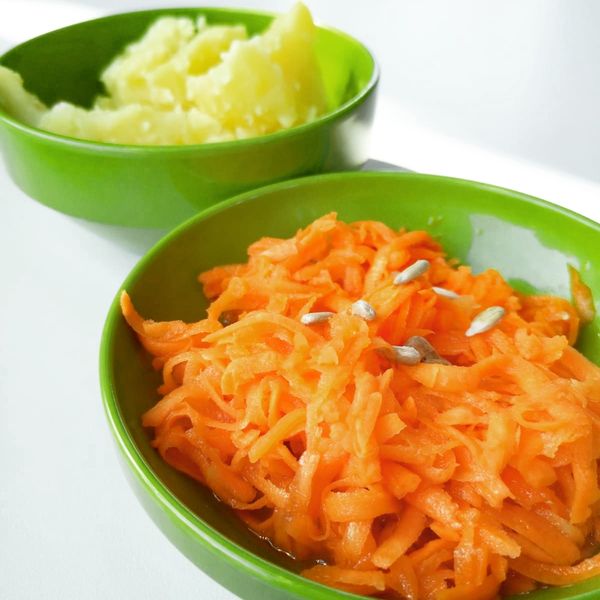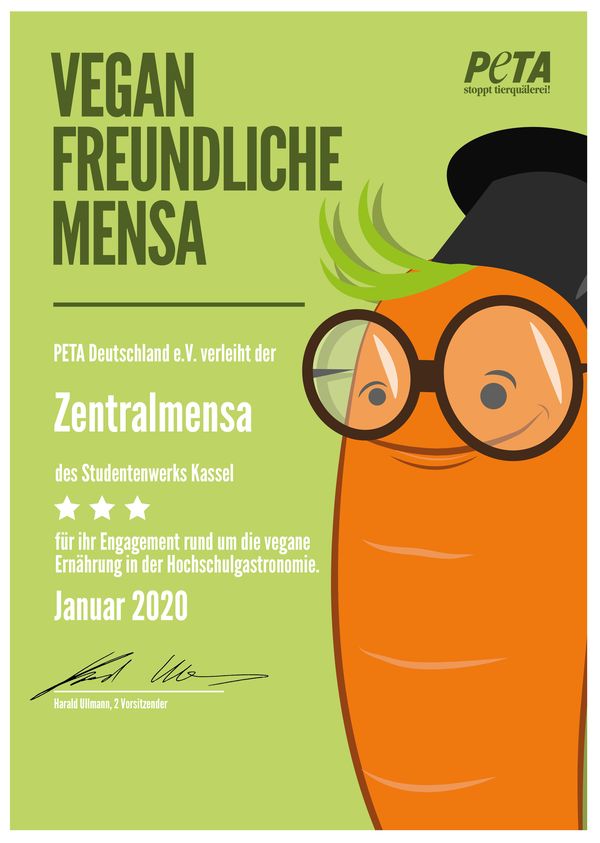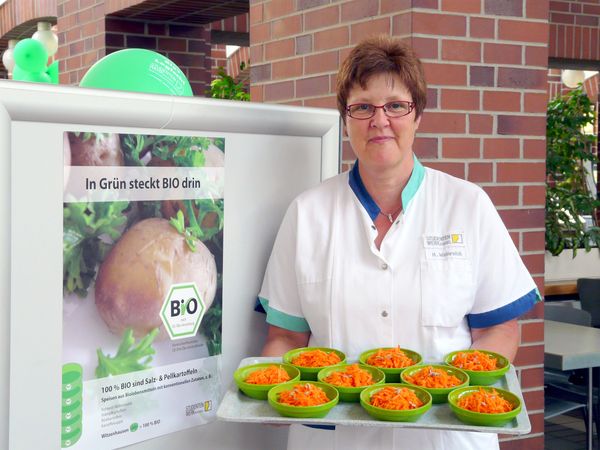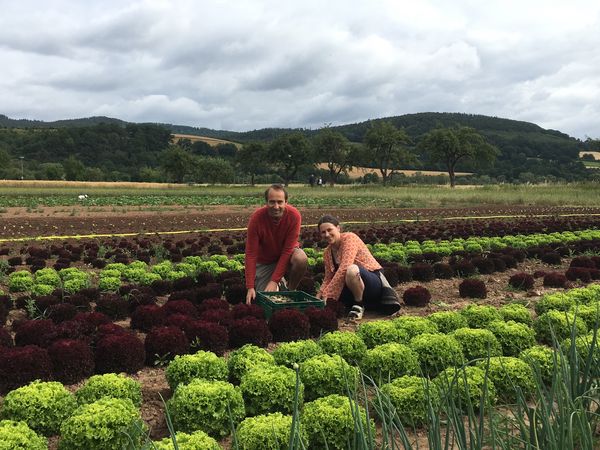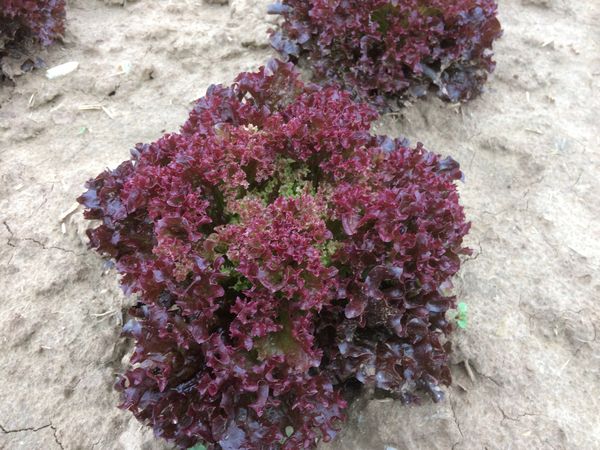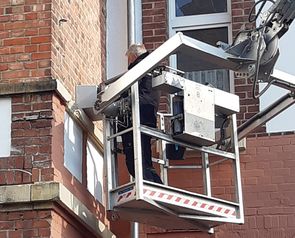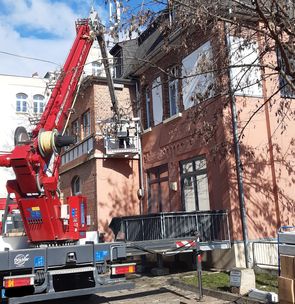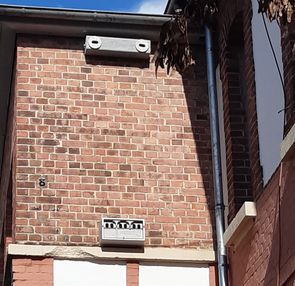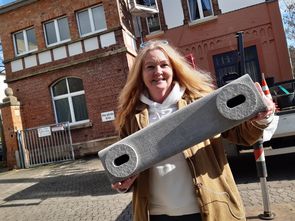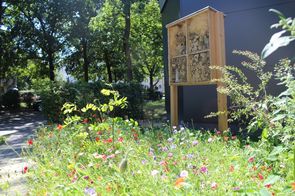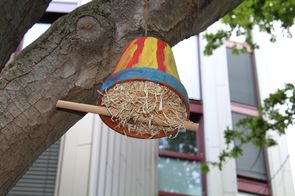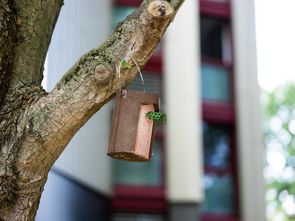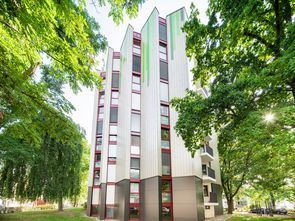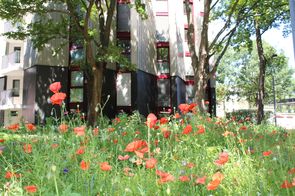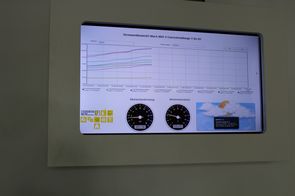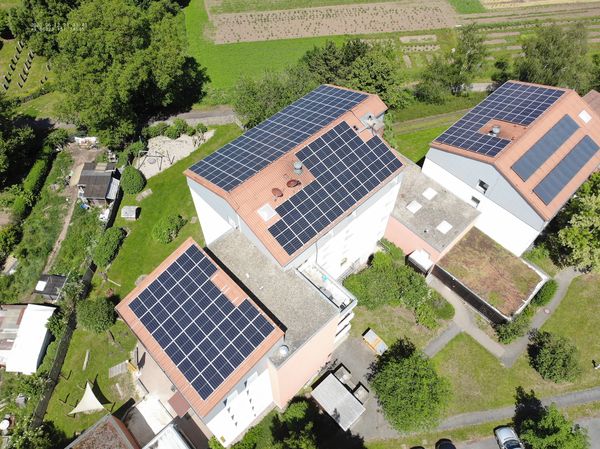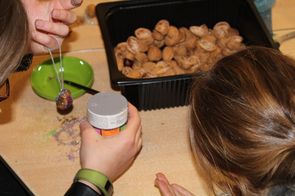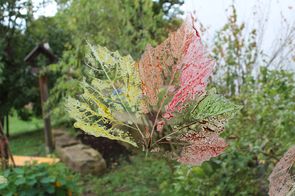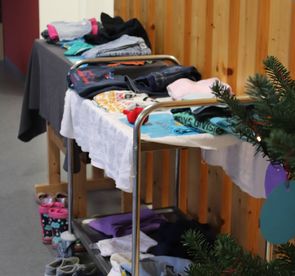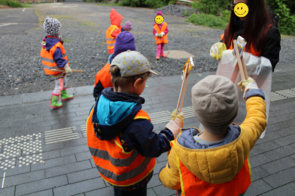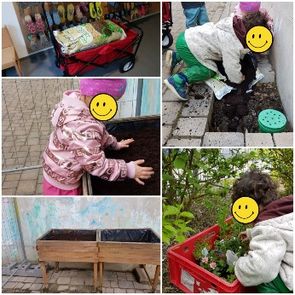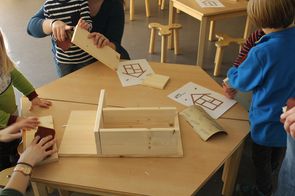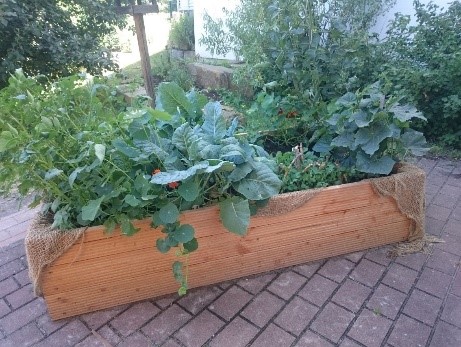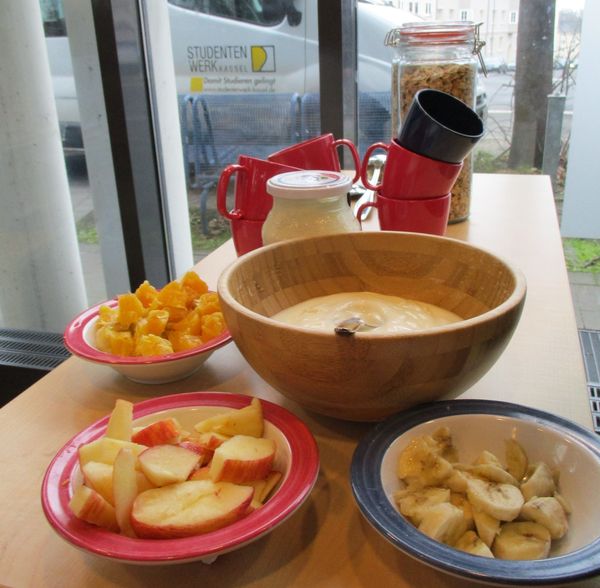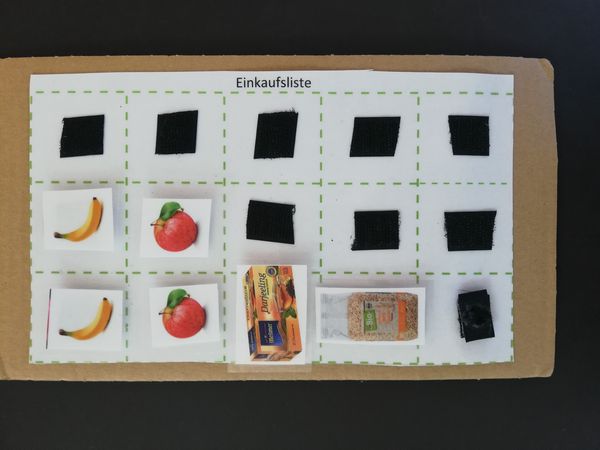Monthly Topic Sustainability
Sustainability for over 300 years
The term "sustainability" goes back to Hans Carl von Carlowitz (1645-1714) from Freiberg, who applied it to forestry in 1713. The aim was to create a stable balance in forestry. The basic idea: In a forest, no more trees should be cut down than can grow back in that same forest in the foreseeable future. This was intended to ensure the long-term existence of the woodland, which forms the basis of forestry.
Sustainability on Campus
The 1973 oil crisis was a shock moment: empty highways on car-free Sundays become a symbol of complete dependence on fossil fuels - the opposite of a sustainable course of action. The forest dieback in the 1980s reinforced this impression.
The consumption of resources, which has continued unchecked since then, and the increasingly visible consequences of climate change slowly create an awareness in society of the need for sustainable action - and so it is on campus.
In 1981, "health food" was introduced for the first time in the dining halls of the Studierendenwerk. We reported on this in the university catering theme month: 50jahre.studierendenwerk-kassel.de/en/monthly-topics/monthly-topic-university-catering
But sustainable action concepts are not only found in the kitchens of the Mensas and cafeterias.
University Catering
From purchasing to preparation to sales, everything in the catering facilities of the Studierendenwerk Kassel is aimed at sustainability. The demand and consumption of food is planned and calculated in such a way that hardly any waste is produced. The Mensa kitchens do not cook for stock, but rather adapt to demand - the goal is to cook no more than is actually needed. Food required on a daily basis is purchased in bulk, thus avoiding additional waste. In addition, all food comes from the region, if possible.
Disposable tableware as well as disposable packaging is normally avoided wherever possible. For to-go goods - especially important in Corona times - only biodegradable containers made of sugar cane are used. Outside of the pandemic, the Studierendenwerk relies on reusable to-go dishes. In the Moritz, Lock & Lock boxes are available: After a one-time purchase, the boxes can be exchanged for new ones at each visit. In the cafeterias, there are deposit cups, stainless steel thermo to-go cups, and also a cup bonus for cups you bring yourself.
However, environmental friendliness applies not only in front of the counter, but also behind it: All kitchen equipment is checked for environmental compatibility and energy efficiency before it is purchased. Cleaning agents are technically dosed as low as possible to avoid unnecessary consumption, and in general they are chosen so that they are well degradable.
We have compiled a list of what is particularly important to us at
https://www.studierendenwerk-kassel.de/en/essenundtrinken/wissenswertes/bioundmehr/?type=
Organic. And good.
The mixed salad seasonally offered in our Mensas is not only super tasty and crisp - it's also organic. The lettuce varieties Lollo-Rosso, Crispy and Batavia come from the Ruhlengut organic farm in North Hesse. Judith and Tim Treis have been running the farm since 1997 and, among other things, supply our Mensas with fresh, regional organic products.
In the video, Tim Sichtermann, head of the Zentralmensa, presents how the fresh lettuce is processed in the salad kitchen, in the so-called catacombs of the central cafeteria.
Housing Management
Creating living space for students is one of the oldest tasks of the Studierendenwerk. Although energy efficiency measures are always taken into account in new buildings today, this was not the case when the older student halls were built. Today, these are being renovated to save resources, for example by applying composite thermal insulation systems to the exterior walls, insulating the roof surfaces, and using modern heating systems that also allow for solar heating of domestic water. This not only saves energy, but also makes cost-effective living possible - anyone living in a Studierendenwerk student hall today is doing so in a resource-conserving way.
The Studierendenwerk already informs its tenants when they move in about ways to conserve resources when heating and saving drinking water. In the Weserstraße student hall, which was renovated in 2017 to make it more energy-efficient, the Studierendenwerk took an innovative approach with an energy-saving competition to give students encouragement to save resources even in an urban environment. Flora and fauna were taken into account when designing the outdoor area around the building: there is an insect hotel, bird nesting boxes and bat boxes.
A photovoltaic system on the student hall Am Sande 1/1A in Witzenhausen has been generating solar power since July 2020, which is permanently available to the residents as "tenant electricity" and will supply the Studierendenwerk's service vehicles with energy in the medium term. Last year, 68.5 MWh of electricity were produced and 26 tons of CO² were saved. This corresponds to around 800 planted trees.
The Hessian Ministry of Economics, Energy, Transport and Housing presents the photovoltaic system in Witzenhausen in a video. Michael Fuchs, department head of student housing at Studierendenwerk Kassel, explains the advantages.
Child Care Facilities
Special attention is paid to the buildings that are home to the Studierendenwerk's child care facilities: With few exceptions, furniture and playground equipment are made of wood or other natural materials, outdoor play areas are designed to be rich in vegetation and close to nature, and when it comes to the range of toys, natural materials also have absolute priority. The HoPla-Kinderhaus was built using low-energy construction methods.
Health and Safety
Sustainable action is not only important to us in the ecological area - the social dimension is also playing an increasingly important role here: For example, we pay particular attention to sustainable human resources management.
Occupational Health and Safety The goal is to protect Studierendenwerk employees from health and safety hazards in the workplace. This includes a safe and healthy working environment and the minimization of risks for special groups of people such as young people, pregnant women and mothers. Hazards should be recognized and accidents avoided. For this reason, we offer special instruction and training on occupational health and safety, thus informing Studierendenwerk employees about special hazards and possible prevention.
Health Promotion Physically incorrect posture and psychological stress in the workplace are steadily increasing throughout Germany. Days of incapacity to work are most frequently due to back problems or mental illnesses. That's why we want to anchor the topic of health promotion more and more firmly in the Studierendenwerk. So far, we already offer yoga and sports courses for our employees. The workplace can be set up and adapted individually, and in the future we are planning an annual health day for employees in the Studierendenwerk with impulse lectures on healthy nutrition, resilience and mindfulness, as well as sports and relaxation exercises.
Yoga Classes for Employees
Anne Grabow is a full-time quality and hygiene officer at Studierendenwerk Kassel and a part-time yoga teacher. She regularly offers yoga classes for our employees.
Since these classes unfortunately have to be cancelled at the moment due to the Corona pandemic, Grabow shot a yoga video at home - the exercises can easily be done at the individual (office) workstation. Namasté!

